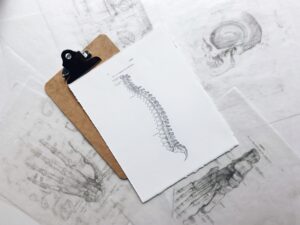Did you know that sciatica is not a condition? It is a description of other symptoms caused by complications in the lower back. Sciatica refers to the pain you feel when herniated disc compresses, inflames, or irritates a nerve root or sciatic nerve. This pain is experienced anywhere between your ankle and the buttocks. Here are the major causes of sciatica.
1. Herniated or Bulging Disc
Did you know that the discs found in your spine perform various functions? They act as a cushion for the vertebrae, they give your spine the flexibility it requires, and they transfer the workload placed on your spine evenly from one disc to the other. Herniation or bulging of the disc mainly occurs in your lumbar spine. This is because it is the part that carries the weight of your upper body and the items you might need to lift. When your disc herniates or bulges, the disc material presses the adjacent root nerve leading to compression of sensitive nerve tissue, which results in sciatica. The disc material also has a chemical irritant that triggers nerve inflammation.
2. Spondylolisthesis
Spondylolisthesis refers to a disorder that mainly affects your lumbar spine. This condition occurs after one vertebra slides over the adjacent one. If the vertebra slides, it may displace; hence, it presses the nerve roots or the nerves below it. This might cause compression, which then leads to symptoms of sciatica. Spondylolisthesis may develop during childhood, or you may be born with it. In case you have acquired spondylolisthesis, here are some of the causes. • Spinal degeneration refers to parts of your spine disintegrating with time. • An accident trauma • Stress from physical activities such as gymnastics or weightlifting
3. Spinal Stenosis
The nerve roots of your spinal cord always branch outward via pathways made of ligaments and bones called neural foramina. The nerve roots go through the openings and combine to form nerves that extend to the other parts of the body. After the development of spinal stenosis, the foramina clogs and narrows, leading to nerve compression. Disc herniation is the one that causes the reduction in space in the canal. Here are some other causes of spinal stenosis disorder. • Bone spurs development • Spinal injuries • Thickening of your ligaments
4. Trauma
Trauma is another direct cause of sciatica. Examples of such instances include car accidents, contact sports, and falling. The impact from these instances can injure your nerves, or if your bone gets fractured, it might compress them. Other types of trauma might cause sciatica, and they include hip dislocation and pelvic fracture, which causes the breakage of the nearby hamstrings leading to irritation of the sciatic nerve. It may also be caused by foreign objects penetrating your body, such as a knife or a bullet.
5. Spinal Tumors
These refer to abnormal growths which are malignant or benign. Spinal tumors are metastatic, meaning that cancer spread from other parts of the body to the spine. Here are benign growths which can press your sciatic nerve. • ABC (aneurysmal bone cysts): These are not tumors; however, they are cysts containing blood that expands very fast. • Osteoid osteomas: These are the tumors found in your bone. They are small and do not enlarge after formation. They can result in formation of a new bone that was not intended to grow in the osteoid bone. • GCT (giant cell tumors): These are aggressive tumors that attack bones near the joint. If the spinal tumor develops in your lumbar, the chances of the development of sciatica increase.
6. Piriformis Syndrome
Pyriformis syndrome occurs when the piriformis muscle irritates the sciatic nerve. This muscle is located in the lower part of your spine; it assists in your hips’ rotation and connects with the thighbone.
Other Causes of Sciatica
There are other causes of sciatica, but they are less common. They include the following. • Nerve damage due to diabetes • Infection of the spinal column or the spine which results in formation of abscess which presses on sciatic nerve • Side effects from treatments • Growing or shifting of fetus which cause nerve compression • Endometriosis refers to the growing of the uterine tissue out of the uterus. The extended parts then surround your sciatic nerve.
Contact the Professionals
Sciatica is excruciating, and it has numerous causes. Some of these causes are discussed above. If you are experiencing severe pain in your back and would like to know why, please contact us today at 205-637-1363 and schedule an appointment. We have a team of specialists who are always ready to help.







